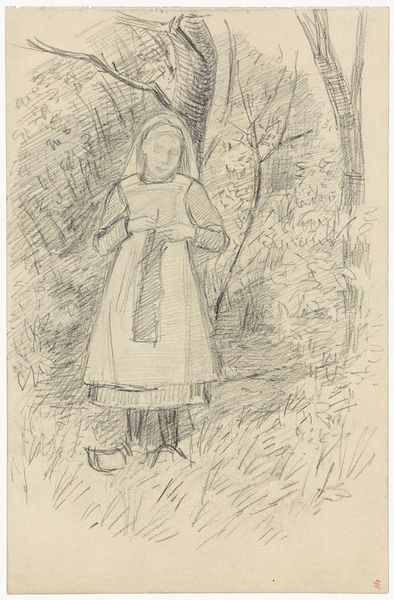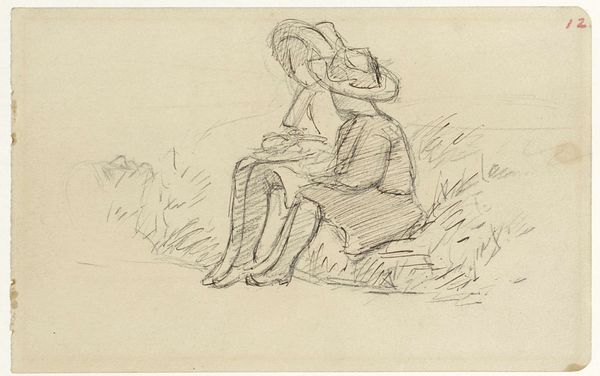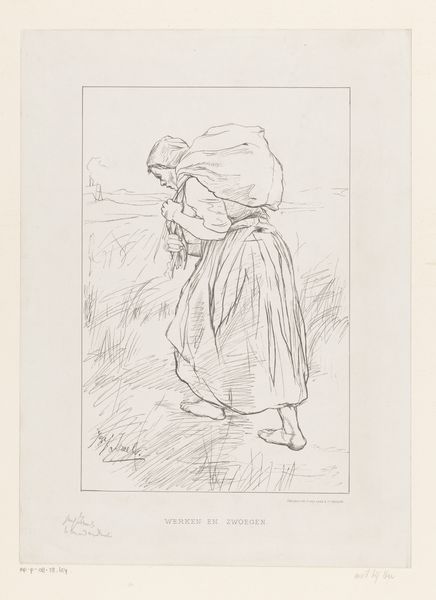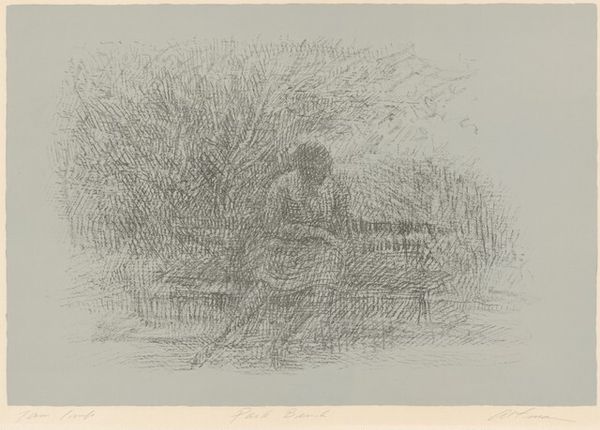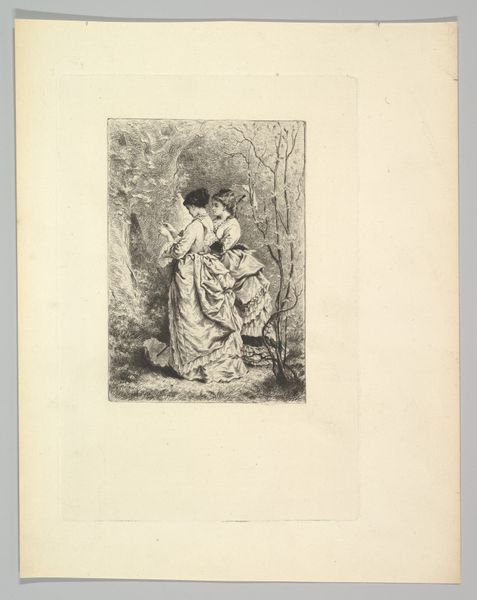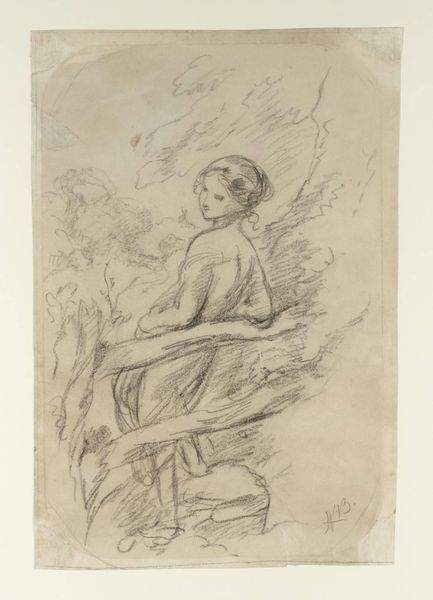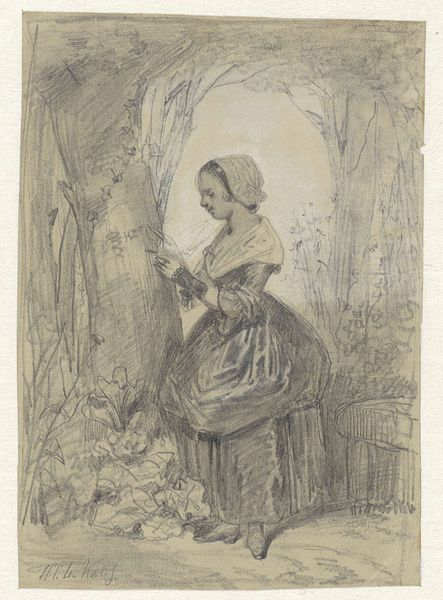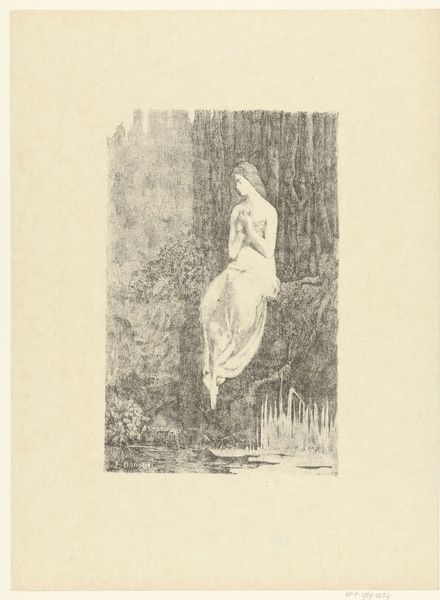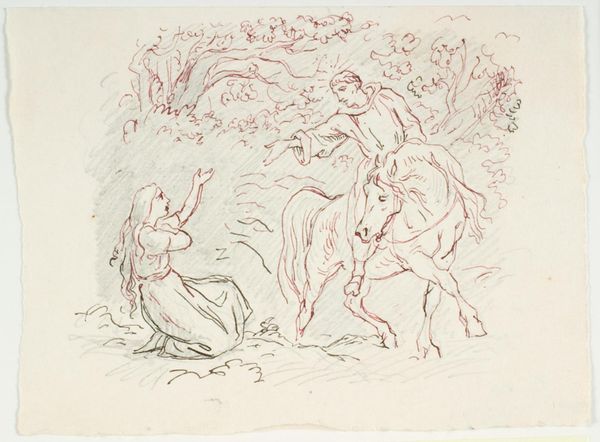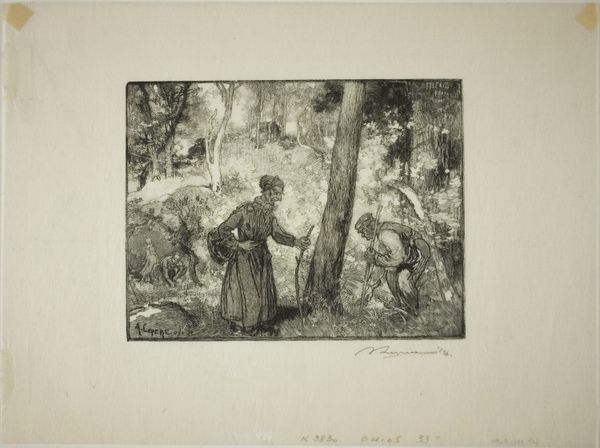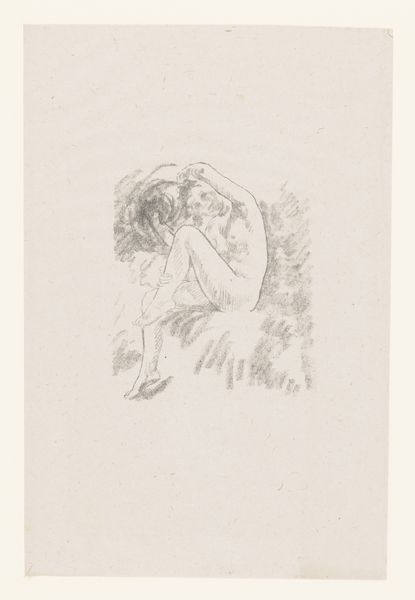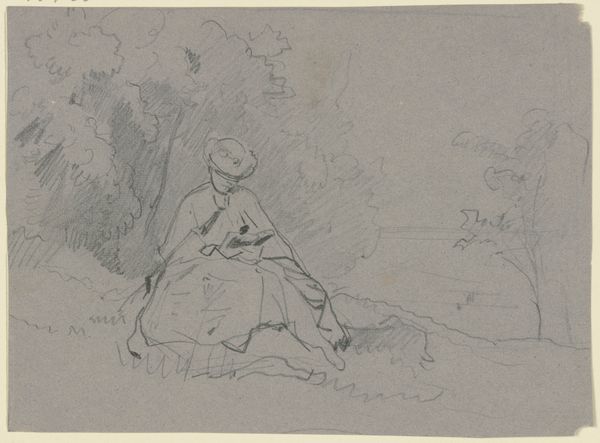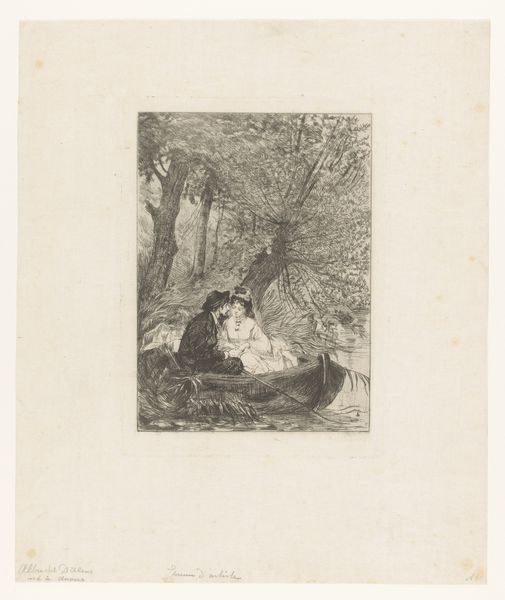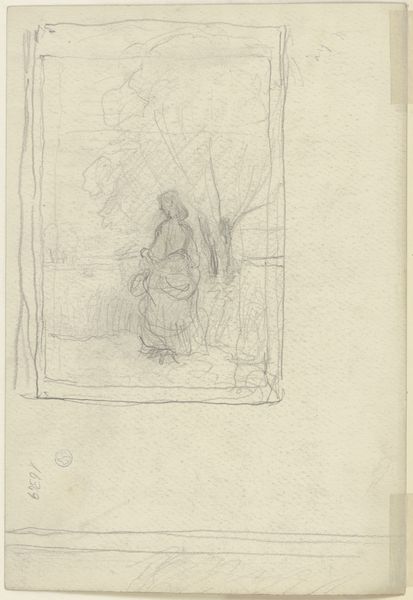
drawing, pencil
#
portrait
#
drawing
#
pencil sketch
#
landscape
#
pencil
#
genre-painting
#
realism
Dimensions: height 290 mm, width 190 mm
Copyright: Rijks Museum: Open Domain
Editor: This is "Zittend meisje in landschap" – "Seated Girl in a Landscape" – by Jozef Israëls, sometime between 1834 and 1911. It's a pencil drawing. I’m struck by how raw and immediate it feels, almost like a quick sketch. What stands out to you? Curator: I'm drawn to the visible labor within this "quick sketch." Israëls used a humble pencil, a tool accessible to many, yet transforms it. Consider the paper itself. Was it mass-produced, hinting at the increasing industrialization of the art world? How does that impact our reading of a scene that seemingly depicts rural life? Editor: That's a fascinating point! It makes me think about the contrast between the simple subject matter and the possibly more complex origins of the materials used to create it. Is he perhaps elevating the common folk by depicting them using increasingly available materials? Curator: Exactly. Also notice the details the artist chose to highlight and those he didn’t. The girl's clogs, for example, suggest rural poverty and manual labor. Israëls deliberately uses the medium of drawing – often considered preparatory – to represent these lives, challenging the traditional hierarchy between finished painting and sketches. Was it a conscious decision to avoid the oil paintings often afforded to more 'noble' subjects? Editor: It's like he's focusing on the dignity of everyday life, by elevating common materials and depicting ordinary subjects, using accessible drawing. Curator: Precisely! And perhaps inviting us to reconsider what we value in art – not just skill, but also the social and economic contexts embedded in the materials and methods of production. What do you take away from our discussion? Editor: I see how this seemingly simple sketch becomes a window into thinking about class, labor, and the democratizing potential of art materials.
Comments
No comments
Be the first to comment and join the conversation on the ultimate creative platform.
